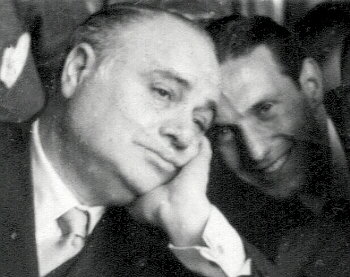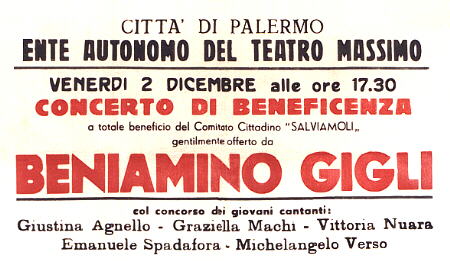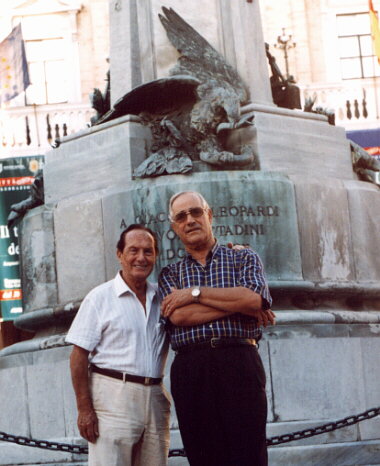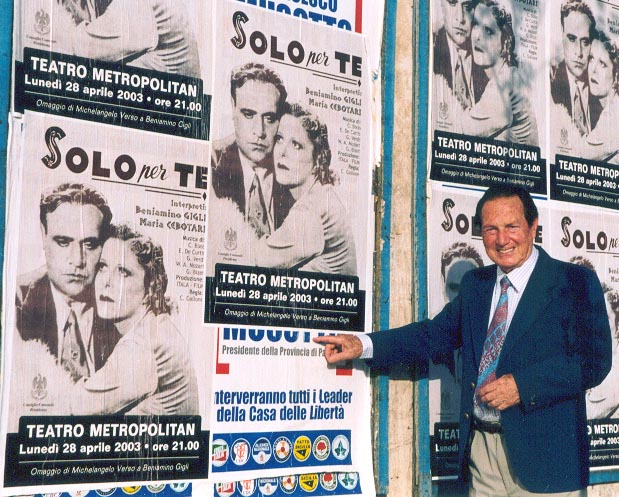 |
After he heard me sing "Che Gelida manina", he told me: "Sing with your own natural voice, without trying to imitate me because an imitation will always be considered a bad copy", but as I had been so in love with his wonderful voice, with his sounds and with his interpretative clarity of diction, I involuntarily tried to follow his style of singing because by now I was too accustomed to hearing his voice from all his records which I had been listening to with great love and passion. |

The same year, Gigli was invited to sing at the church "Santa Rita" of Palermo, and that morning he asked me confidentially if I could bring him some coffee, possibly made by my mother, with a few drops of cognac in it. I remember that I kept it in a little thermos bottle, always at his side for the moments when he needed it. It was nine o'clock in the morning, the church was over crowded, with about 500 people, many standing outside, and without having warmed up his voice ahead of time, Gigli started to sing Ave Maria by Gounod, Panis Angelicus and then Agnus Dei, with an angelic voice, then developing a variety of expressive vocal colors combined with a very sweet mezza-voce, in such a way to make the whole vocal range uniform from the lowest to the highest note, transmitting, great excitement and emotion to all who were present, bringing many people to tears. |
"You can always learn more from critical reviews, as long as they are constructive". |
Among my memories, I had the honour of singing with one of the greatest sopranos of that time, Maria Caniglia, who was one of Gigli's favourite singers. That experience was also a wonderful memory for me because it marked practically the beginning of my career: my first contracts for the U.S.A. and my first contacts with the record companies. |
Michelangelo Verso |
|
|
I too, felt moved to write
|
You have touched the whole world with your
charitable works,
|

|
|

On April 28th 2003, at 'Teatro Metropolitan' of
Palermo, Michelangelo Verso has paid homage to Beniamino Gigli by projecting
the film 'Solo
per te' dated 1937 with B. Gigli and Maria
Cebotari. The original film in 35 mm. format has been made available from
the private collection of M. Verso himself who, on this occasion, has been
awarded with a Commemorative Plate as
recognition for his entire artistic career. |